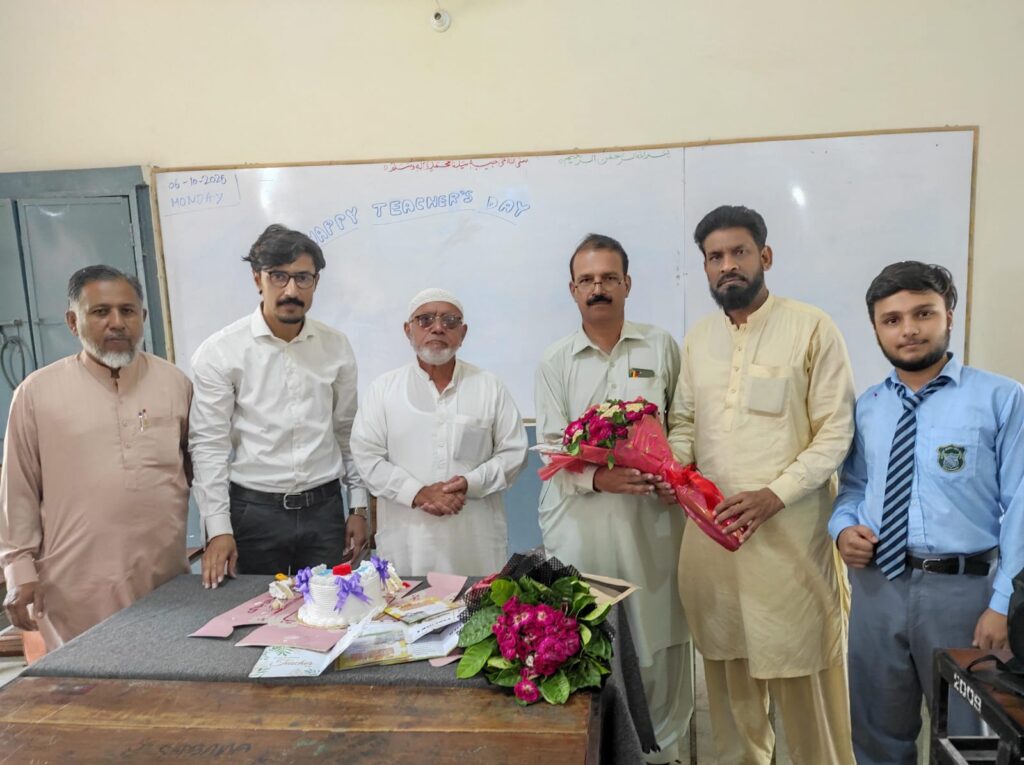Best Courses After Matric in Pakistan
Completing matriculation in Pakistan is a milestone that many students remember as the bridge between school and the start of higher studies. I still recall how my own decision in the 10th class shaped my career and opened unexpected opportunities. Whether you prefer traditional study or skill-based courses, this stage is about finding the best field that matches your strengths. For some, pre-medical or pre-engineering becomes the natural path, while others see value in short programs that quickly lead to practical career paths. At this point, your choices act as the foundation for educational and professional journeys. Having the right guide or guidance—be it a mentor, teacher, or family—can help you navigate the system and select the right option for your future.
From my own experience, good planning and exposure to different fields make the process less overwhelming. A well-thought-out planning phase allows you to balance specialized training with broader education, so you are not locked into a single track too early. This article aims to give insights into the benefits of exploring both study options and practical skill-building. Whether you are a child with a curious mindset, a loved one advising a learner, or someone eager to start new endeavors, remember that your academic base today will influence your professional success tomorrow. By approaching this stage with open eyes and realistic expectations, you can make confident steps toward a rewarding and fulfilling path.
Quick Overview – Best Courses After Matric in Pakistan
- FSc Pre-Medical
- FSc Pre-Engineering
- ICS (Computer Science)
- FA IT (Arts + IT)
- I.Com (Commerce)
- A Levels
- Diploma & Certificate Programs
- Freelancing Skills Courses
- Joining the Pakistan Rangers
- Joining the Pakistan Army
Study and Career Options
After matriculation in Pakistan, I remember standing at that pivotal juncture, unsure which pathways would shape my future. Many students face the same concern, wondering whether to follow traditional streams like FSc Pre-Medical or FSc Pre-Engineering, which open doors to careers in medicine and engineering, or to explore modern options like ICS and FA IT for tech enthusiasts and digital fanatics. Some lean toward commerce-oriented routes such as Icom, while others aim for internationally recognized programs like A Levels that bring global advantages. Every study choice comes with its opportunities and challenges, so understanding your interests and aspirations early can make a big difference in achieving your career goals.
From my own journey, a clear guide and honest clarity about strengths and weaknesses were essential in making the right choices. I sought direction from mentors who helped me weigh each solution carefully before committing. Your goals might align with traditional academics or a more modern skill-based route, but knowing the avenues available ensures you won’t limit your potential. Whether pursuing programs aimed at futures in specialized sectors or following pathways that encourage broad learning, the key is to see each option as an investment in both your academic and professional life.
FSc Pre-Medical
Choosing FSc Pre-Medical after matric can be a turning point for students aiming for careers in medicine, pharmacy, or biomedical sciences. This stream builds a strong foundation in Biology, Chemistry, and Physics, helping with the understanding of complex life sciences that are vital in medical fields. From my own experience, the scope here is vast, offering opportunities in medical colleges, nursing schools, and biotechnology sectors, along with roles in healthcare that demand both skill and dedication.
Career Prospects: Graduates can expect entry-level roles in laboratories, healthcare assistants, or pharmacy sales, often starting from PKR 25,000–40,000/month, with salaries increasing significantly after higher studies like MBBS or Pharm.D.
FSc Pre-Engineering
Opting for FSc Pre-Engineering after matric is a smart choice for students who want to build a foundation in Mathematics, Chemistry, and Physics. This blend is perfect for students pursuing careers in engineering or technology, as it strengthens their analytical thinking and problem-solving abilities. These subjects helped me develop critical thinking and a methodical approach to problem-solving, skills that later proved invaluable in my professional journey.
This stream offers a broad scope, encompassing various branches of engineering along with fields like architecture and technical education. Graduates can move on to universities that offer specialized fields aligned with their interests, ranging from civil to electrical engineering. When students understand these career pathways early on, they can better prepare themselves for success in industries that value innovation and technical expertise.
Career Prospects: Fresh engineering diploma holders or assistants can earn PKR 25,000–45,000/month, while degree holders in specialized fields can earn far more, especially in the private sector or multinational companies.
ICS Pathway
For college students passionate about computing and technology, ICS offers a balanced mix of Computer Science, Mathematics, and Physics. The curriculum builds essential skills through programming, system analysis, and software development, preparing learners for the scope of careers in software engineering, IT management, and advanced computer science. In my experience, this stream not only sharpens problem-solving skills but also offers a clear pathway into the rapidly growing IT sector, where both theoretical knowledge and practical application are highly valued.
FA IT
Opting for FA IT after matric can be a smart choice for students looking to combine Information Technology with Arts subjects. This path allows you to explore creative arts while building solid technology skills. Opportunities range from working on digital media projects to gaining skills in basic programming and IT fundamentals. The scope also covers areas such as multimedia design, digital marketing, and entry-level IT roles where creative thinking blends with practical tech skills. I’ve seen peers turn these skills into successful careers, combining their art and tech expertise to stand out in competitive markets.
I.com
I.com or Intermediate in Commerce is a great choice for students who want to step into commerce, finance, or business careers. It focuses on Economics, Accounting, and Business Studies, giving you foundational knowledge of business operations and financial management. This foundation opens the scope for further studies like commerce degrees, banking, and business administration, making it a smart start for anyone aiming to grow in business fields.
A Levels
When I chose A Levels, I was attracted to the wide range of subjects and the flexible curriculum that let me shape my studies around my interests. For students aiming for international education standards, its versatility and depth open doors to a wide range of academic opportunities. The scope is impressive, giving students access to universities worldwide, specialized programs, and a wide range of global career opportunities. With a variety of subjects and international standards, it offers flexibility, helping students get into global universities and prepare for international careers.
Career Prospects: While salaries depend on further education, A Levels improve chances of securing international scholarships and higher-paying roles abroad or in multinational companies in Pakistan.
Courses After Matric
Picking the right course after matric can shape your entire career path. In this section, we’ll explore various diploma options and how they can benefit you, so you can make an informed decision.
Diploma or Certificate Program
After matric, many students look for diploma or certificate courses that can help them gain practical skills and become job-ready in a short time. Options like computer applications, graphic design, technical skills in electrical trades, or mechanical trades are popular because they usually last from six months to two years, offering benefits such as quick entry into the job market. I’ve seen friends select specializations based on their interests, market demand, and the credibility of the institution. These courses offer strong career prospects, providing immediate job opportunities and the option to specialize further, which can open even more career paths.
Freelancing Opportunities After Matric
After matric, many young people are drawn to freelancing courses because they teach valuable skills like content writing, graphic design, digital marketing, programming, and even blogging topics, such as 10 Facts about Snapchat. These abilities are essential for securing freelance projects online, and the training often includes building a portfolio, effective client communication, and project management. From my own experience, learning multiple skills simultaneously has given me the benefits of flexibility and the freedom to work from home, while also opening doors to potential high earnings.
Another reason these courses are popular is their ability to let you work on varied projects while choosing a course based on current market trends and your own skills. It’s also wise to check the platform’s reputation before diving in. The scope for growth is huge — you could be working on platforms like Upwork and Fiverr, or even starting your own freelance business. I’ve seen people go from their first online gig to a steady income within months, simply by staying consistent and adapting to market needs.
High-Demand Skills in Pakistan After Matric
Some skills are becoming increasingly valuable in Pakistan’s job market:
- Artificial Intelligence & Machine Learning basics
- Cloud Computing Fundamentals
- Social Media Marketing & Content Creation
- Cybersecurity essentials
- E-commerce management and online store setup
Learning these alongside your main course can give you a competitive advantage.
Pakistan Rangers
For those seeking a disciplined career in national security, joining the Pakistan Rangers can be a life-changing choice after matric. Recruit training focuses on physical fitness, tactical skills, and security management, preparing individuals for key roles in border security and internal peacekeeping. From my experience meeting officers in this organization, I’ve seen their programs build not only physical strength but also the mental discipline essential for the job. The benefits include job stability, a strong sense of patriotism, and additional allowances, making this profession highly respected.
However, it’s important to consider factors like physical and mental demands, as well as the readiness to serve in challenging environments. This profession covers a wide range of security operations and offers opportunities for career advancement and long-term growth. Many who choose this path enjoy strong long-term career prospects, gaining the satisfaction of serving the nation while securing their future.
Pakistan Army
Joining the Pakistan Army after matric can be a life-changing decision for individuals aiming for a disciplined and structured career in the defense services. The courses for recruits focus on physical fitness, combat training, and developing leadership skills, preparing you for diverse roles in defense, engineering, medical services, and administrative positions. Along this path, you gain benefits such as job security, educational opportunities, and career advancement through military ranks, while the honor of serving the country adds a deeper purpose. However, selecting this career requires commitment to national service, readiness for rigorous training, and the deployment potential that comes with the scope of security and service work.
Mistakes to Avoid After Matric
- Choosing a course just because friends are taking it
- Ignoring personal interests and market trends
- Not researching the future job scope and required qualifications
- Overlooking skill-building alongside academic studies
Conclusion
After matric, I remember facing so many options that initially felt overwhelming, but with the right guidance, I was able to choose a path that truly matched my aspirations. Some friends chose traditional academic paths like FSc or A Levels, while others pursued vocational diplomas, started freelancing, or even considered joining disciplined forces such as the Pakistan Rangers or the Army. Every choice comes with its benefits and opportunities, but the key is to consider your interests, career goals, and market demands before making a decision. By building a strong foundation, you can work toward a successful and fulfilling future, confident that you’ve made the right choice. Let this guide inspire you to explore your options and move forward with confidence into your next chapter.
FAQs – Best Courses After Matric in Pakistan
Q1: Which is the best course after matric for a high-paying career?
For tech enthusiasts, ICS with programming skills is highly in demand; for science lovers, FSc Pre-Medical or Pre-Engineering leads to lucrative professional fields.
Q2: Can I start freelancing right after matric?
Yes, with skills like graphic design, content writing, or digital marketing, you can start freelancing from home.
Q3: Which diploma has the highest demand in Pakistan?
Computer applications, graphic design, and e-commerce management diplomas are currently among the most in-demand.


